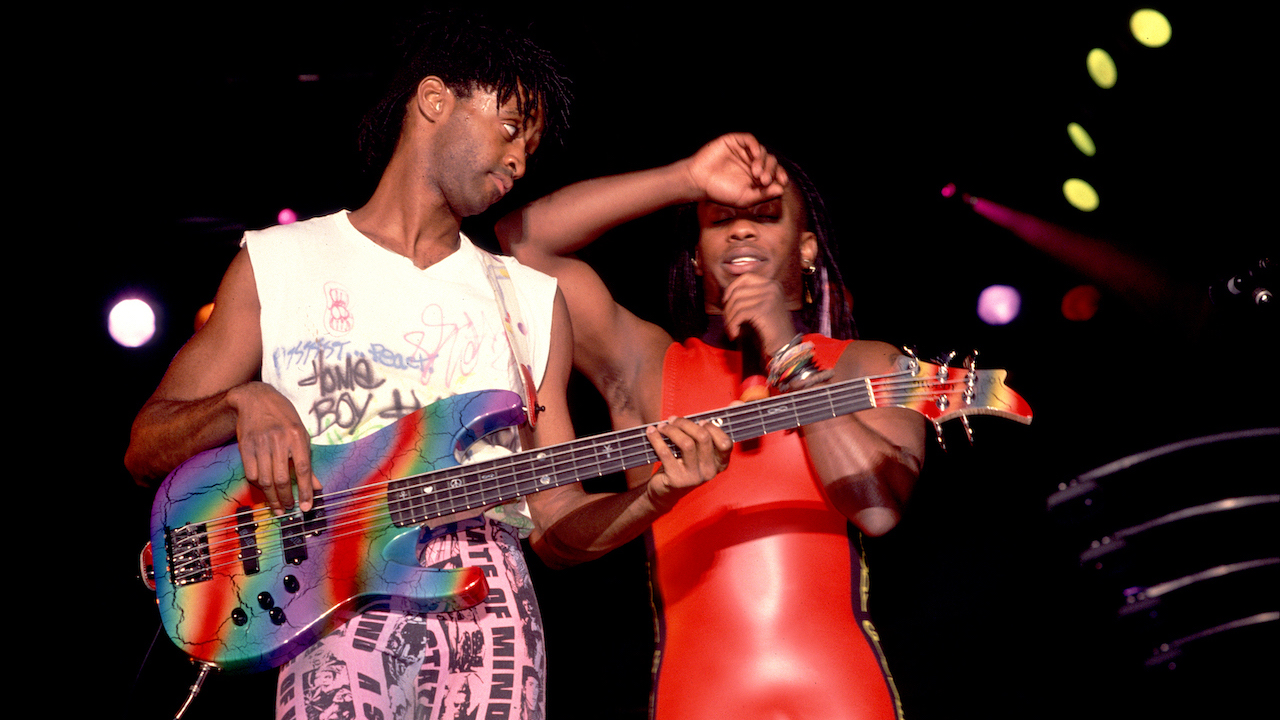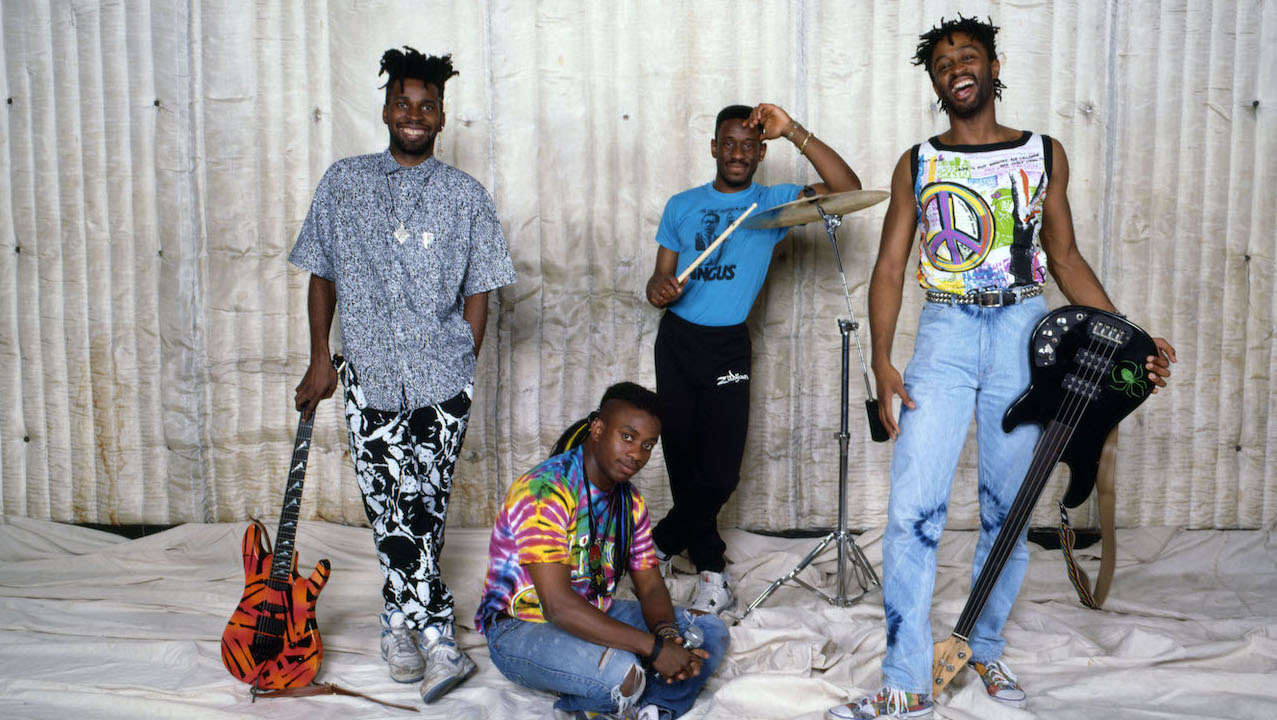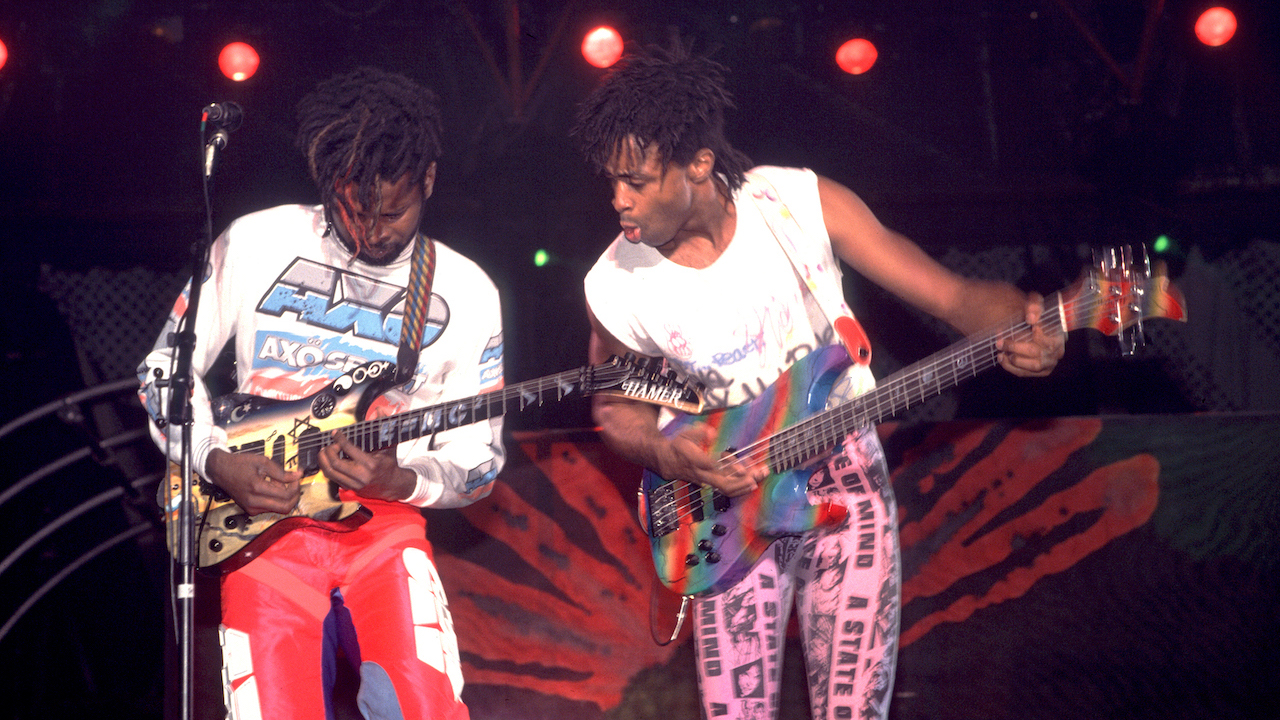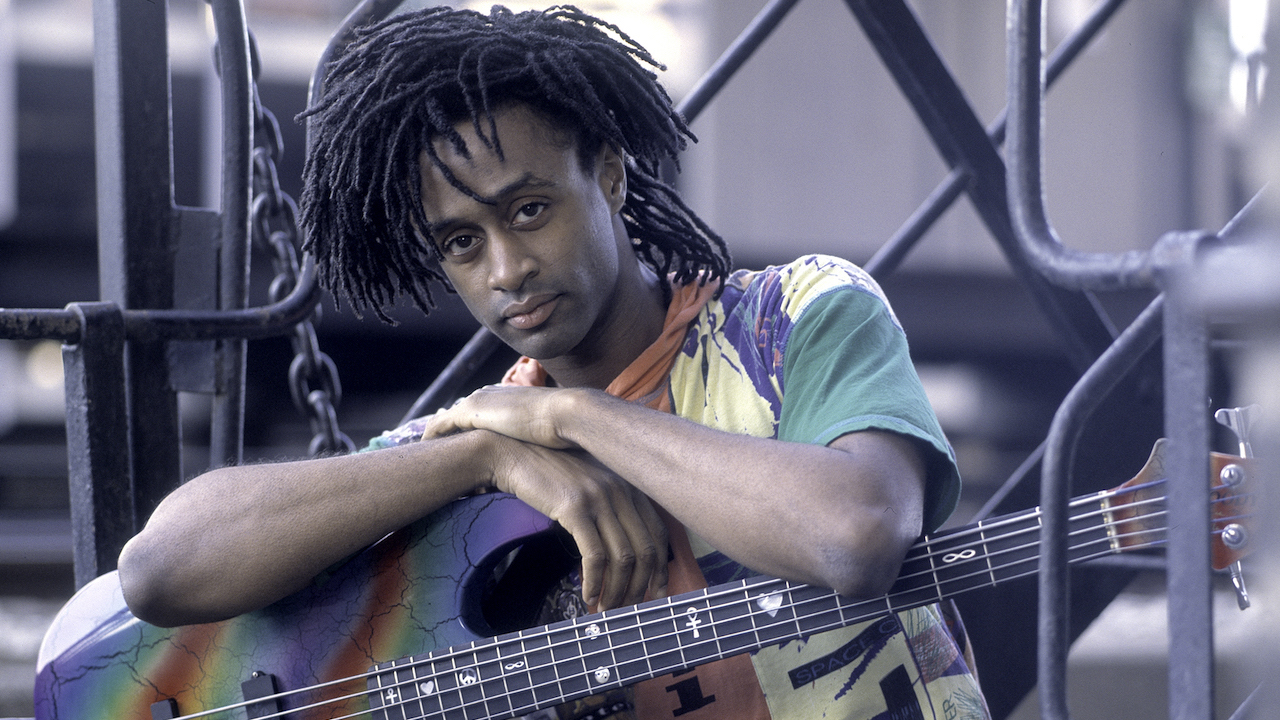“I still have the strings I used on that session in a Ziploc bag”: How Muzz Skillings took the rock world by storm on Cult of Personality
Muzz Skillings kept things fresh on this heavy, riff-based smash from Living Colour's debut album

Rock fans of a certain age will remember the debut album by the American rock band Living Colour. Released in 1988, Vivid – a heady cocktail of rock, funk, metal, and punk – became a multi-platinum smash. The first single, Cult of Personality, reached number 13 on the Billboard Hot 100 chart on the back of a savvy video and heavy MTV rotation, and scooped a Grammy Award the following year for Best Hard Rock Performance.
The band – Corey Glover (vocals), Vernon Reid (guitar), Muzz Skillings (bass) and Will Calhoun (drums) – may have dressed in eyeball-aching dayglo colours, but they played like demons, rocking up a jazz-tinged, riff-heavy, funk-laced storm. Skillings’ expert slap-and-pop, when allied with the metallic music, virtually defined the alternative-metal scene of the day.
“At the time, rock music was filled with a lot of straight eighth notes,” Skillings told BP in his May/June 1991 cover story. “We wanted to get away from that, but if you swing too much, it interrupts the head banging, and that’s the last thing I wanted to do – the head banging reigns supreme!”
The media soon got hold of Vivid and realised that this was no ordinary rock band – but the members of Living Colour were initially taken aback by the insistence on focusing on the band being all African-Americans. “For me, it was surprising, having grown up in Queens,” said Skillings. “In New York people were used to the idea of black bands playing rock. We were like, ‘OK, so what?’ My first band was an all-black rock band. So it wasn’t a big deal to us. I had to learn how unique we were on my travels. I had to learn that we were an anomaly.”

Following a quote from Malcolm X, Cult of Personality flares into life courtesy of a searing guitar riff that provides the foundation for the whole song. Skillings and Cahoun join the fray in the third bar, with Skillings stamping the riff with his own signature, beefing up the sound with double-stop octaves. “I was always very conscious of the fact that we were essentially a power trio. So I was always looking for ways to fill out our sound however I could, but I only played the double-stops in the interludes – never when Corey was singing.”
Skillings introduces a more laid back feel in the chorus, adding colour through the use of subtle chromatic passing notes and occasional 16th note fills. “The fills are all different, and they’re all there for a reason, but it’s not the kind of thing you can really show in notation. It’s more of an attitude or a vibe. I put a lot of thought into what I would play; I thought about every variation of the riff.”

The rhythm section link up again as they build into Reid’s guitar solo. “That’s when we’re in freight train mode,” said Skillings. “In my mind I’m linking up with Will’s hi-hat. At the end of the solo, Will starts playing a swing pattern that – to me – was a revolutionary move in hard rock. That’s one of my favourite moments in the song. I tried to frame it by playing straight as he swung.”
Get The Pick Newsletter
All the latest guitar news, interviews, lessons, reviews, deals and more, direct to your inbox!
The tension resolves as Calhoun picks up the pace before bringing the music to a shuddering halt, rounded off by a few words from Franklin D. Roosevelt. “Looking back, I’m really happy to say that we did something new,” said Skillings, who left the band in 1992. “Back then, what we were doing was really revolutionary, set against the broader backdrop of rock music. At our shows, there were refined African American women in gowns and pearls standing next to slam-dancing skinheads. Seeing those people together was the bomb, and Cult of Personality was what got them there.”

For the session, Skillings played his white ESP Horizon bass guitar – strung with GHS Bass Boomers – through a Gallien-Krueger 800RB head and a Hartke 4x10 cabinet. "I still have the strings I used on that session in a Ziploc bag!"
Vivid is available to buy and stream.
“When I first heard his voice in my headphones, there was that moment of, ‘My God! I’m recording with David Bowie!’” Bassist Tim Lefebvre on the making of David Bowie's Lazarus
“One of the guys said, ‘Joni, there’s this weird bass player in Florida, you’d probably like him’”: How Joni Mitchell formed an unlikely partnership with Jaco Pastorius











